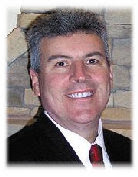Under our “system” of paying for long-term care, you may be able to qualify for Medicaid to pay for nursing home care, but in most states there’s little public assistance for home care. Most people want to stay at home as long as possible, but few can afford the high cost of home care for very long. One solution, which is growing in popularity, is to tap into the equity built up in your home. If you own a home and are at least 62 years old, you may be able to quickly get money to pay for home care (or for anything else) by taking out a reverse mortgage. Reverse mortgages, financial arrangements designed specifically for older homeowners, are a way of borrowing that transforms the equity in a home into liquid cash without having to either move or make regular loan repayments. They permit house-rich but cash-poor elders to use their housing equity to, for example, pay for home care while they remain in the home, or for nursing home care later on. The loans do not have to be repaid until the last surviving borrower dies, sells the home or permanently moves out.
In a reverse mortgage, the homeowner receives a sum of money from the lender, usually a bank, based largely on the value of the house, the age of the borrower, and current interest rates. For example, a 70-year-old borrower with a $200,000 house in County X, State Y, could receive a loan of $115,000. The lower the interest rate and the older the borrower, the more that can be borrowed. Homeowners can receive the money in one of three ways (or in any combination of the three): in a lump sum, as a line of credit that can be drawn on at the borrower’s option, or in a series of regular payments. The most popular choice is the line of credit because it allows a borrower to decide when he or she needs the money and how much. Moreover, no interest is charged on the untapped balance of the loan.
Although it is often assumed that an elderly person would want to use the funds from a reverse mortgage loan for health care, there are no restrictions--the funds can be used in any way. All borrowers must be at least 62 years of age to qualify for most reverse mortgages. In addition, a reverse mortgage cannot be taken out if there is prior debt against the home. Thus, either the old mortgage must be paid off before taking out a reverse mortgage or some of the proceeds from the reverse mortgage used to retire the old debt
Call us now for assistance (240) 453-0070. We can help you!
At Senior Life Care Planning, LLC we are dedicated to giving our clients the power to be informed individuals and to give peace of mind. We provide honest ways to protect your home, loved ones and independence in times of great need. We understand the emotional burden, confusion, anger, hopelessness, sense of injustice, fear and loneliness that come with long-term disability and end-of-life issues.
Every day we help and support families and individuals who are in crisis. We work with our clients to provide peace of mind and quality of life.
Senior Life Care Planning, LLC
One Research Court, Suite 450
Rockville MD 20850
240.453.0070
www.seniorlcp.com
Monday, July 13, 2009
Subscribe to:
Post Comments (Atom)
Blog Archive
About Me

- Senior Life Care Planning
- Maryland, United States
- My life changed in the early to late 1990' My grandfather was living in Chevy Chase, Maryland. One night I received a call. I answered the phone, to hear that my grandfather, had fallen. Subsequently, he was taken to a nursing home. I was the attorney in the family, so everything was left to me. During this time, I had lots of questions: what options were available; what's a good nursing home, would he get good care; how are we going to pay for it? I tried to find answers to these questions. But I could only catch glimpses of the big picture. That research was my first act into the practice of elder law and life care planning. After granddad was in the nursing home. I researched this area and I started putting together what later turned out to be the beginning phases of my new life care planning practice and my calling.





No comments:
Post a Comment